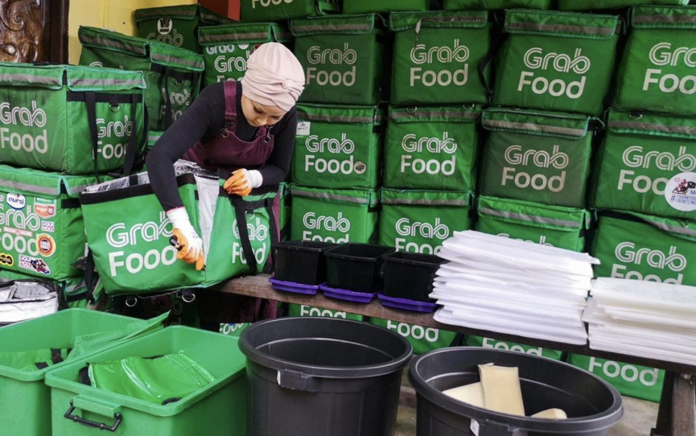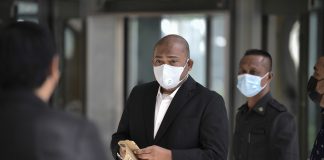KUALA LUMPUR, July 17 — Deeply touched by the food delivery services during the pandemic, when people had to stay at home due to the COVID-19 virus, a fashion designer came up with the initiative to produce various items from used food carrier bags.
For Neng Kho Razali, 37, from Kuching, Sarawak, who gives a ‘new look’ to the used GrabFood carrier bags, by repurposing them into school bags, pencil cases, pouches, coin purses and face masks, the effort can certainly benefit the community by donating the items to the needy.
“For me, a food delivery bag is not just an ordinary bag, but also brings joy and hope to many people, because it also went through ‘sacrifices’ – of rain and heat – along with the riders who carry it.
“Hence, I thought, if you want to ‘upcycle’ (produce a new product with a higher value) other products, they must be meaningful products, and have value for new users,” she told Bernama recently.
According to her, as a result of collaboration with e-hailing company Grab, starting in June last year, and with the help of two of her employees, more than 400 items from 200 used carrier bags have been produced, to be donated to charity homes around Kuching city.
Recalling her early involvement in the project, the fashion designer said that she initially produced several designs from the used food carrier bags, and handed them over to the e-hailing company before agreeing to implement them for charity.
“Usually the food delivery riders will receive a new bag after nine months, and the old bag will be returned to the company. I received the first batch of used bags in September 2020,” she said.
She said that the process of giving a new look to those old bags begins with a sanitation process on receiving the items, before taking the bag apart to determine which parts are still reusable, before they are soaked, washed and scrubbed to ensure that the parts look as brand new as possible.
Then, she said that designing and sewing of items would be done, but sometimes it took quite a while to produce, due to labour constraints and equipment such as sewing machines as well as storage space to place the products.
Thus far, all the goods produced are not sold on any business platform, as they are sent back to Grab Malaysia for distribution for charity.
















